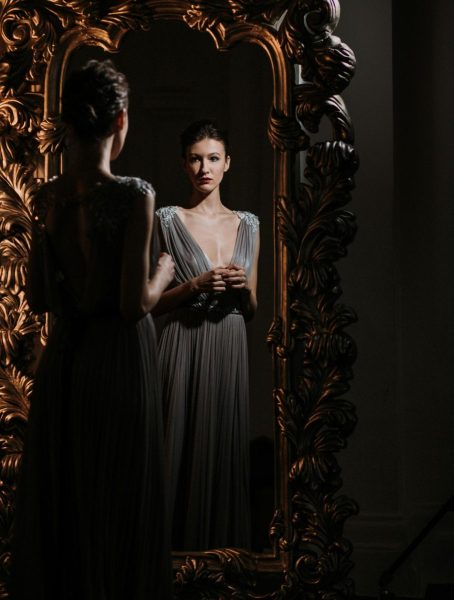Are We a Christ-Centred Community?
November 9, 2022
William Clarke College is a Christ-centred community, that seeks to develop extraordinary learners with a passion to serve others.
The College’s purpose statement is something we hear again and again. Whether it be in Dr Marsh’s famous character talks, those assembly and year group meeting PowerPoints, or even in our beloved College song. It is a statement that has been embedded into College life itself as, by definition, a purpose statement should be.
However, how well does William Clarke embody its purpose as a Christ-centred community? Are we losing our focus on this central part of College life?
I think it can be agreed upon that the primary goal of William Clarke College is to educate. Hence, we spend a minimum of 600 hours in the classroom each year. In terms of service activities, while some say we should do more, we still do numerous serving events each year, such as the world’s greatest shave, Clean Up Australia day, and the blankets and beanies appeal, just to name a few. So, it seems fair to say that we have a good two-thirds of the purpose statement covered right there. But with all the changes that came at the beginning of the year, I have noticed a significant reduction of focus on being a community that shares the word of God.
To start, the College does do many things well in this area. We have weekly chapels, and if students want to learn more, they can go to GLO at lunch or Growing with God afternoons, and certain grades still do have compulsory Christian studies. The school does a far better job than many others. Although, from the perspective of a Year 10 student it feels like the College is moving further away from being a Christocentric community.
Firstly, for senior students, there has been a significant reduction in our compulsory Christian input hours. Some of my friends think that’s fantastic. But here are the stats so you can make your own judgement:
- There are no compulsory Christian studies classes for students in Year 10 this year. Instead, the regularly scheduled classes are being replaced with a mandatory elective at some point in Year 9 or 10, experiencing two years of Christian studies classes, condensed to a semester.
- In 2021 there was three single periods of Christian studies a fortnight. This is roughly equivalent to the total amount of time that students will spend during a single semester of one of their explore courses for Christian studies.
- Chapels are 15 or 25 minutes depending on the week
- Before, there was a 55-minute chapel every week
Considering all this, the 2022 system gives students a significantly lesser amount of compulsory Christian learning a week, whereas the previous system gave students more time thanks to the longer chapels and regular, sustained implementation of Christian studies classes. Whether or not you prefer the old or new system, this clearly shows that these changes have steered the College from compulsory Christian studies.
On a positive note, the reduction of compulsory Christian activities has brought about positive change within optional ones. Yep, you heard me right, and by better I, of course, mean longer. With the longer lunches, this year GLO has become longer, an earlier finish to school means Growing with God afternoons start slightly earlier, and Stage 5’s CD electives provide students with a new way to explore Jesus if they choose to do so.
And that’s the key thing about all these new changes. The “if you choose to” part of it. If students want to learn more about God, then there are numerous ways to do so. But if they’re not interested, then it’s likely they’ll learn very little at William Clarke. This year we have been taught that the College is trying to give students more agency. But for Christians, we believe that one of the most important things to do is spread the gospel. So, what is the right direction for a Christocentric school? Is it to give more time for spreading the gospel to those most in need of hearing to good news? Or is it to give students the choice to learn more about Christianity by making the decision to go to GLO?
Well, I believe the answer could be a bit in between. A part of the College’s purpose is to be a Christ-centred community, so we should be doing more than we are now. Perhaps we should introduce weekly stage-based chapels, as many Year 10 students seem to prefer them:
“Longer, stage-based chapels are better than the assembly version. They have more time to explore the Bible through fun activities and games.” – Dimitri N
“With stage chapel, the talks are a lot more targeted and personal to different age groups.” – William T
“Staged-based chapels are better as the grades get more involved. They are more enthusiastic towards the songs and games then in whole school chapels.” – Keziah S & Emmie K
“Stage-based chapels are better than secondary chapels because we can sing and worship together. This makes them more engaging and helps me focus more on the talk.” – Angus D
“I like how the stage chapels allow us to learn through games and songs. These help explain what the talk is about in a more enjoyable way.” – Jacinta H
Although, I would like to note that it is important not to overdo the amount of compulsory Christian activities. As many students seemed to suggest that we might have been doing too much last year, the College needs to remember that the target audience of chapels and CD are non-Christians. Forcing them to listen to 135 minutes of Christian learning a week can create a negative stigma against Christianity, the opposite of what was intended.
A healthy balance needs to be found where the College is introducing non-believers to the gospel, whilst also not overloading them with too much information that they don’t really care about. I’m suggesting that the old system may of have had too much Christian learning for non-believers, whereas the new one may have too little. Perhaps a middle ground is the answer.
In light of all this, who knows what next year has in store for William Clarke? Maybe we will see some changes happening, or maybe not? But to all students I want to encourage you to take the opportunity to ask the big questions about Christianity whilst you are still at William Clarke College.













